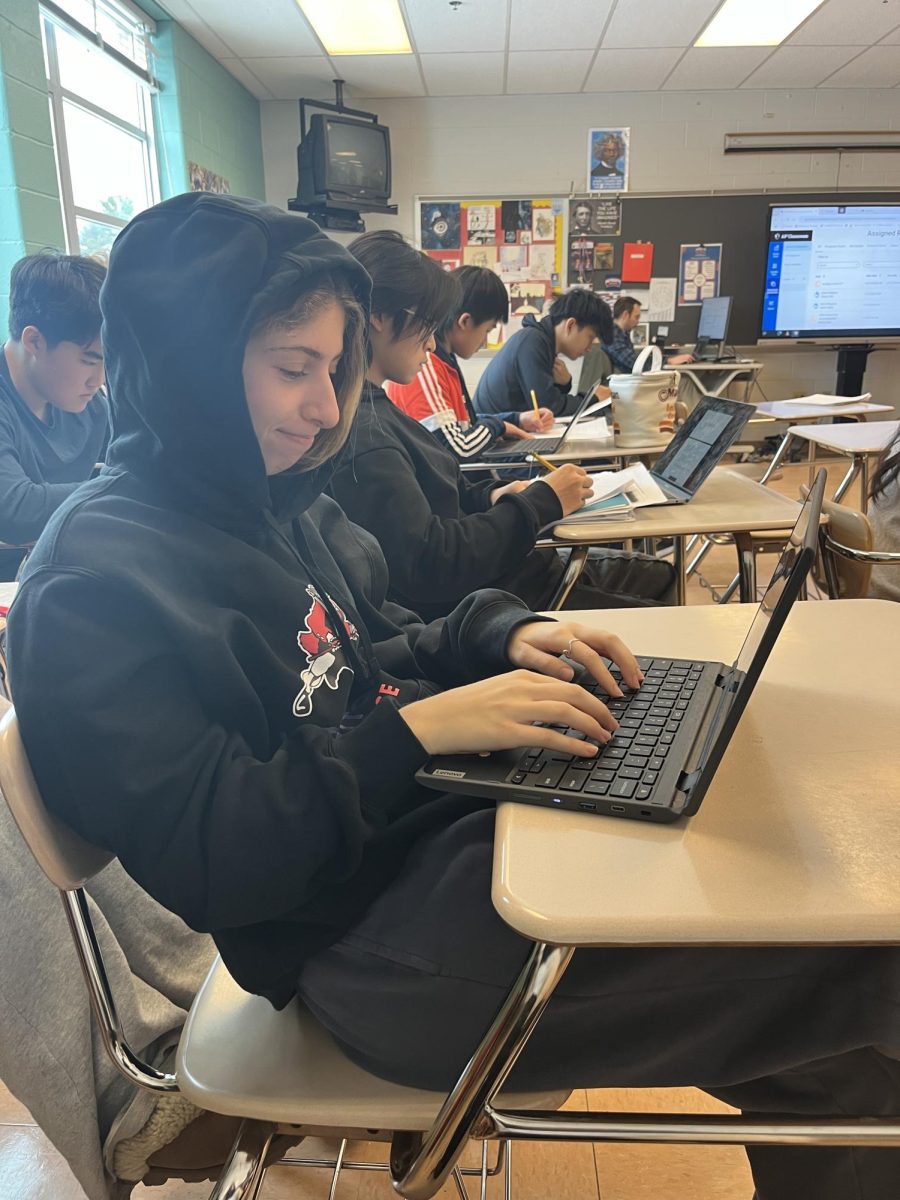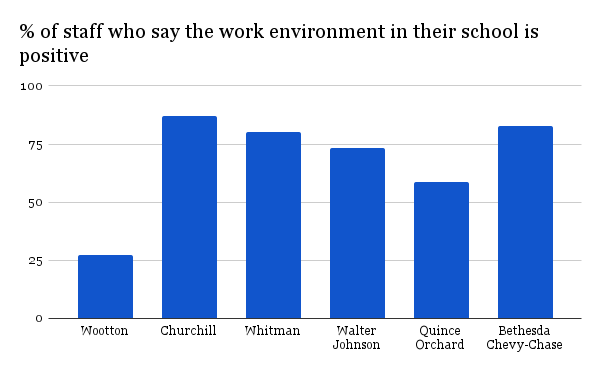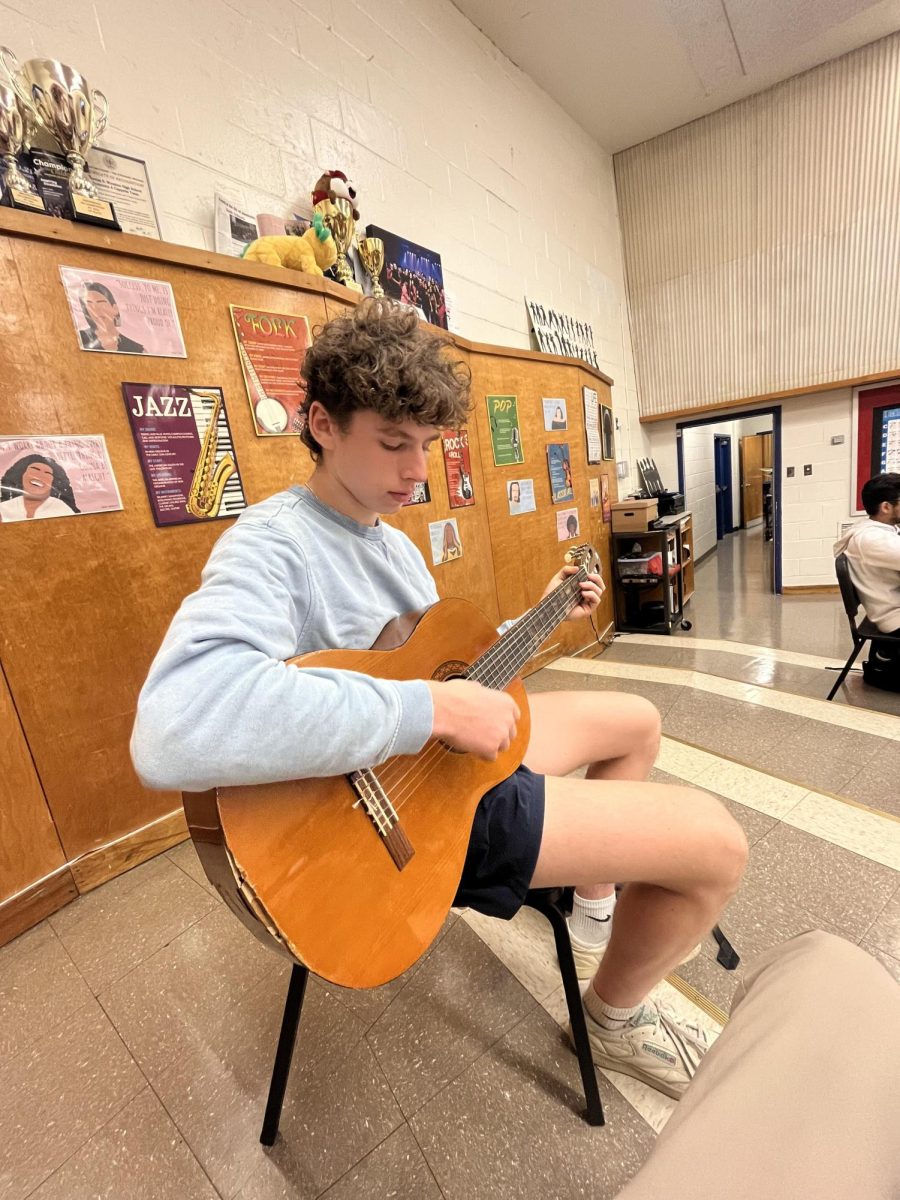Vitamin D is crucial for the well-being of a human: it has neurotrophic properties that affect brain pathways that are associated with depression and anxiety, according to ADD SOURCE. When we feel the warm sunlight on our faces and we can walk outside the house with just shorts and a T-shirt, our body increases the production of a neurotransmitter called serotonin. However, as the cold rolls in and the days get shorter, students may feel an unexplainable increase in sadness, exhaustion, and lack of motivation. Doctors diagnose this as seasonal affective disorder (SAD) or, in other words, seasonal depression.
Students especially feel the effect of the winter months, as it seems they spend all the little daylight in the school. Junior Alina Parikh said, “As the leaves fall from the trees, my mental health state takes a similar drop. Expectations pile up, and the overwhelm leads me to procrastinate and feel stuck. When I’m stressed, I lose motivation and struggle to take action. Fall turning into winter feels like a challenge, and I have to prepare myself mentally. The cold air makes me feel like it’s harder to move forward.”
The sun sets at approximately 4:40 p.m. in peak daylight savings time, and students get dismissed at 2:30 p.m., giving roughly two hours of daylight left. This all contributes to reduced motivation to do school work and extracurricular activities. This impacts students as the winter months are usually the most stressful, with piles of homework and tests to study for almost every other day. The shorter and colder days “make winter feel like it will never end and the season kind of casts a shadow on everything,” junior Alek Bargman said.
Seasonal depression can be even worse for student-athletes, who go straight from school to practice, and when practice ends it’s already dark outside. Senior Brenden Famulare said, “It feels like my days are so much shorter in the wintertime, especially because when I come out of practice it’s dark outside.”
Daylight is crucial for students to feel motivated and awake. When darkness hits, our bodies shut down and think that it’s time to lay in our comfortable bed and sleep. This is even worse for student-athletes who come home extra tired from their practice or game.
Despite all of this, students have mastered ways to cope with their seasonal depression. Junior Varun Rajesh said, “Working out is one way that helps me cope with the winter months.”
Along with working out, students can cope with seasonal depression by connecting with loved ones, journaling, and taking advantage of what the winter months have to offer. This could be by going skiing, ice skating or grabbing hot chocolate with friends. Making the best of what you have is always a way to feel happier at heart.




![Editors-in-Chief Ahmed Ibrahim, Helen Manolis, Cameron Cowen, Alex Grainger, Emory Scofield, Hayley Gottesman, Rebekah Buchman and Marley Hoffman create the first print magazine of the year during the October press days. “Only a quarter of the schools in MCPS have programs that are like ours, a thriving, robust program. That makes me really sad. This is not just good for [the student journalists] to be doing this, it’s good for the entire community. What [student journalists] provide to the community is a faith in journalism and that continues for their lifetimes," Starr said.](https://woottoncommonsense.com/wp-content/uploads/2025/10/wmpoFTZkCPiVA3YXA4tnGoSsZ4KmnKYBIfr18p3l-900x1200.jpg)



